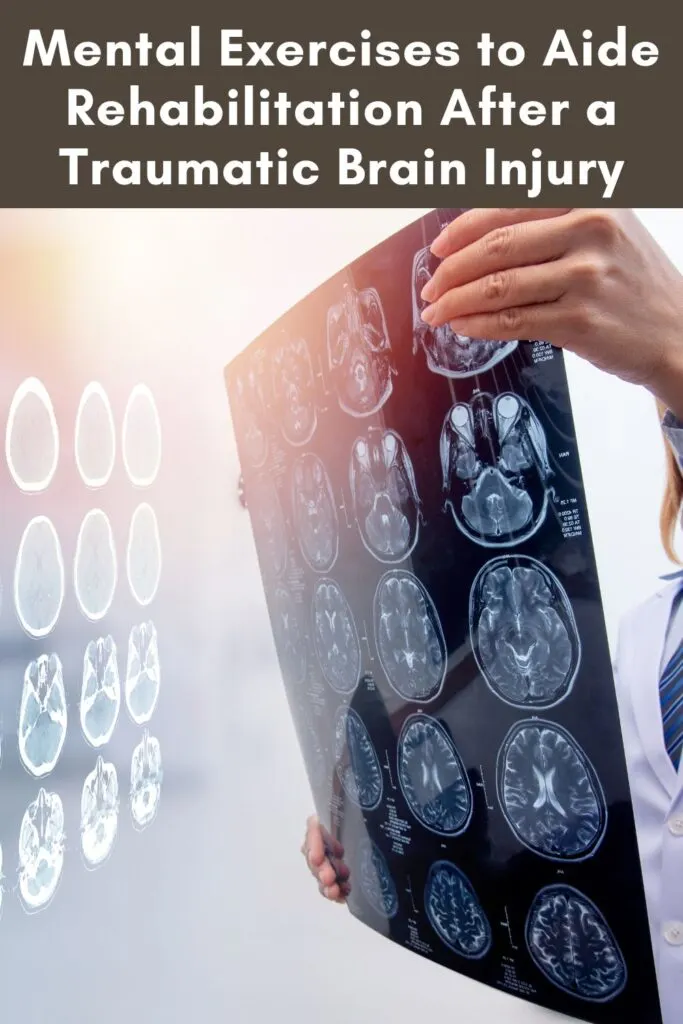
Suffering a brain injury can be a life-changing experience. The effects of such an injury can range from physical to emotional and cognitive, making it essential to incorporate various rehabilitative techniques to help the patient reach their full potential. Mental exercises can be beneficial for patients with a traumatic brain injury as they strengthen essential thought processes and help build self-confidence.
If you have suffered a traumatic brain injury, staying active and engaged in rehabilitative activities is vital to recover effectively. Mental exercises can be a great way to do this.
Here are some mental exercises that may be beneficial for your rehabilitation:
- Memory Games
Memory games such as crosswords and puzzles can help improve memory recall and overall cognitive function. By regularly engaging in memory games, you can help your brain become more efficient and better able to retain information. Your doctor may be able to recommend specific memory games tailored to your individual needs.
Some of the most popular memory games are:
- Crosswords
- Sudoku
- Jumbles
- Word Searches
- Cognitive Exercises
Cognitive exercises can help improve your ability to think logically and make decisions more efficiently. They involve various activities, such as problem-solving, logic puzzles, and brain teasers. You should consult your doctor to determine what cognitive exercises are suitable for you and your condition.
Also, consult a personal injury lawyer to protect your legal rights. The Wieand Law firm handles a wide variety of claims related to traumatic brain injuries. Having a personal injury attorney protect your rights and help you receive just compensation for any damages is essential.
- Mindfulness Exercises
Mindfulness exercises are a great way to reduce stress and increase self-awareness. By taking some time each day to focus on your breathing and be mindful of the present moment, you can help reduce feelings of anxiety and depression that may be associated with your traumatic brain injury.
You can also use these exercises to help better manage your emotions and be more in tune with your feelings.
- Art Exercises
Art exercises can be incredibly therapeutic for recovering from a traumatic brain injury. Not only do they allow you to express yourself creatively, but they also help stimulate different parts of the brain responsible for problem-solving and imagination.
Art exercises can be as simple as doodling or coloring or more involved such as painting or sculpting. They help you to engage in creative pursuits and foster a sense of self-expression.
- Meditation
Meditation is a great way to relax, reduce stress, and improve focus and concentration. Regular meditation practice can help you better manage your emotions and increase resilience to stress. It involves taking deep breaths and using visualizations or mantras to stay focused on the present moment.
Meditation also helps increase self-awareness and mindfulness, allowing you to be more in tune with your feelings and reactions to different situations.
- Physical Exercises
Physical exercises are essential for helping to speed up your recovery from a traumatic brain injury. Regular physical activity helps to improve coordination, balance, and motor skills. It also helps reduce stress and boost self-confidence. Depending on the severity of your injury, you may need to consult with your doctor before engaging in any kind of physical activity.
- Socialization
Interacting with others is an integral part of recovering from a traumatic brain injury. Participating in social activities such as group conversations, recreational activities, or volunteer work can help improve communication skills and keep your mind active. It can also provide emotional support and boost self-esteem.
In summary, there are many different types of activities that can help you recover from a traumatic brain injury. These include memory games, cognitive exercises, mindfulness, art, meditation, physical exercises, and socialization. It’s essential to consult with your doctor before beginning any therapy or activity plan to ensure it is right for you and your condition.
